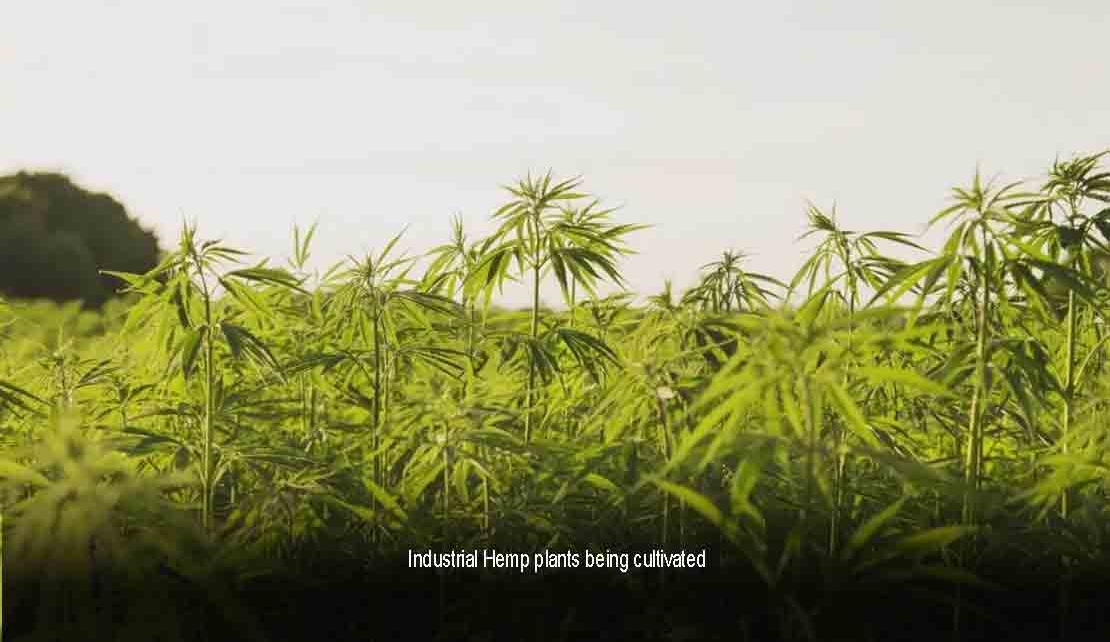GUYANA to allow cultivation of industrial hemp under strict guideliness

GEORGETOWN, Guyana, August 9, 2022 - Guyana’s National Assembly on Monday passed groundbreaking legislation which will allow for the cultivation of industrial Hemp in an effort to further diversify the country’s economic base.
Following the passing of the Industrial Hemp Bill last evening, Minister of Legal Affairs and Attorney General Anil Nandlall announced that the cultivation of industrial hemp will be carried out under strict legislative guidelines.
The Hemp which is part of the marijuana family and is mostly cultivated for medicinal and commercial purposes, according to Nandlall, will first be grown in the East Berbice-Corentyne and Upper Demerara-Berbice regions of the country.
Under the legislation, industrial hemp is considered to be any plant of the genus cannabis with a delta-9 tetrahydrocannabinol concentration of not more than 0.3 percent on a dry weight basis.

With local and international investors already knocking at its door, the Government, the Attorney General said Regions Six and 10 are two regions that can be considered depressed that we need to stimulate employment and economic activities,” he explained to the House on Monday evening.
The Attorney General noted that there are a number of large companies, including conglomerates in North America that are anxiously awaiting the enactment of the Bill.
It was noted that aside from its economic benefits, industrial hemp has tremendous environmental and health benefits. It was pointed out that industrial hemp is a clean, renewable resource that produces a net negative in relation to carbon emissions when planted.
“It absorbs carbon dioxide and releases oxygen into the atmosphere with one acre of hemp being able to absorb over 22 tons of carbon dioxide. When harvested, it replaces more polluting materials in the manufacturing industry and provides alternatives for sustaining the environment. For example, in the paper industry, it can prevent deforestation with its high rate of recultivation making it an obvious environmental choice over the use of trees for the manufacturing of paper,” the Legal Affairs Minister explained.
Medically, low levels of TCH are used in medicines to relieve the symptoms of chronic pain, vomiting and nausea associated with chemotherapy
Agriculture Minister Zulfikar Mustapha, in presenting the Bill to the National Assembly, said “Hemp production in Guyana is a win- win situation for all the players involved. For the grower, it will be a source of income generation and job creation. For the consumers, it would have significant benefits, and for the broader economy, it would be a valuable source of foreign exchange, especially in the context of economic diversification.”
While the legislation decriminalizes the production of hemp with a THC level that is less than 0.3%, the Agriculture Minister said the bill clearly distinguishes hemp from marijuana and creates a legislative framework to effectively regulate the local industry.
As such, the Industrial Hemp Bill provides for the establishment of a body corporate – the Guyana Industrial Hemp Regulatory Authority and a governing board.
To ensure consideration is given to public health safety, agriculture and commerce, the board, when constituted, will comprise representatives from the Ministry of Agriculture, the Ministry of Health, the Ministry of Home Affairs, the Guyana Forensic Science Laboratory and the Private Sector Commission.
According to Part II, Section 6, the authority would be responsible for the consideration of application for the issuance or refusal of licenses, the suspension or revocation of licences granted and prescribing of quotas for the cultivation of industrial hemp by each licensee.
Part III of the bill makes it illegal for anyone to cultivate or manufacture industrial hemp, produce hemp related products or conduct research on industrial hemp without a licence issued by the authority. Cultivation licence would be valid for a period of three years while manufacturing licence would have a life of 15 years. Failure to secure the requisite licence will result in a summary conviction and a fine of $500,000 and one year imprisonment.
“In designating such area, consideration shall be given to the suitability of the area, the risk of diversion, the risk of contamination, economic decentralization, and the proximity to educational institutions, public places and residential areas frequented by children.
This is to ensure that any negative impact will be mitigated. As such, prospective locations that would be identified would have a significant amount of acreage,” he explained while adding that vulnerable communities with unemployment issues would be targeted.
-30-

 En
En  Ar
Ar